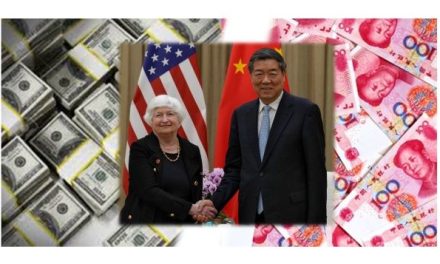As much as banks advocate anti-money laundering, several major financial institutions have taken a blow to their reputation for being involved in several high-profile cases. Despite the secrecy and confidentiality most (all?) customers desire from their lenders, when they are found guilty of money laundering, banks get put under the microscope for not doing enough to stop the issue.
The United Nations reports that the estimated amount of money laundered globally in one year is 2 – 5% of global GDP, or US$800 billion – US$2 trillion, if you’re keeping track. Due to the clandestine and nebulous nature of money laundering, it’s difficult to estimate the total amount of money that actually goes through the money washing cycle.
As such, financial regulators around the world continue to advocate anti-money laundering and impose high fines on banks suspected of conducting these illicit activities. While technology like blockchain and AI have enabled more visibility in transactions today, money laundering is still affecting global economies around the world.
In Southeast Asia, Singapore’s central bank plans to create a digital platform to enable banks to share information on customers and transactions as part of its anti-money laundering efforts. According to a Reuters report, the Monetary Authority of Singapore plans to launch the platform in the first half of 2023 and make it available to the city-state’s six biggest commercial banks during its initial phase.
In Thailand, Bangkok Bank has deployed a solution that integrates and consolidates anti-money laundering (AML) processes across its 300 branches worldwide. Developed together with tech company SAS, the AML solution leverages SAS Anti-Money Laundering to establish a global standard of compliance, crossing 14 economies that include eight other Southeast Asian markets, among them China, Hong Kong, Japan, Taiwan, the United Kingdom, and the United States.
 “Money-laundering is a serious and growing challenge for the world’s finance system, and financial authorities around the world have put in place stringent requirements for banks to tackle it. It is a global problem, requiring a global solution,” said Suteera Sripaibulya, Senior Executive Vice President of the IT Division at Bangkok Bank.
“Money-laundering is a serious and growing challenge for the world’s finance system, and financial authorities around the world have put in place stringent requirements for banks to tackle it. It is a global problem, requiring a global solution,” said Suteera Sripaibulya, Senior Executive Vice President of the IT Division at Bangkok Bank.
She explained the various rules-based anti-money laundering systems the bank had in place around the world were still adequate for compliance with each local regulator’s requirements on a case-by-case basis, but the bank also recognized the need and opportunity for transformation.
Source: TECHWIRE Asia news


























